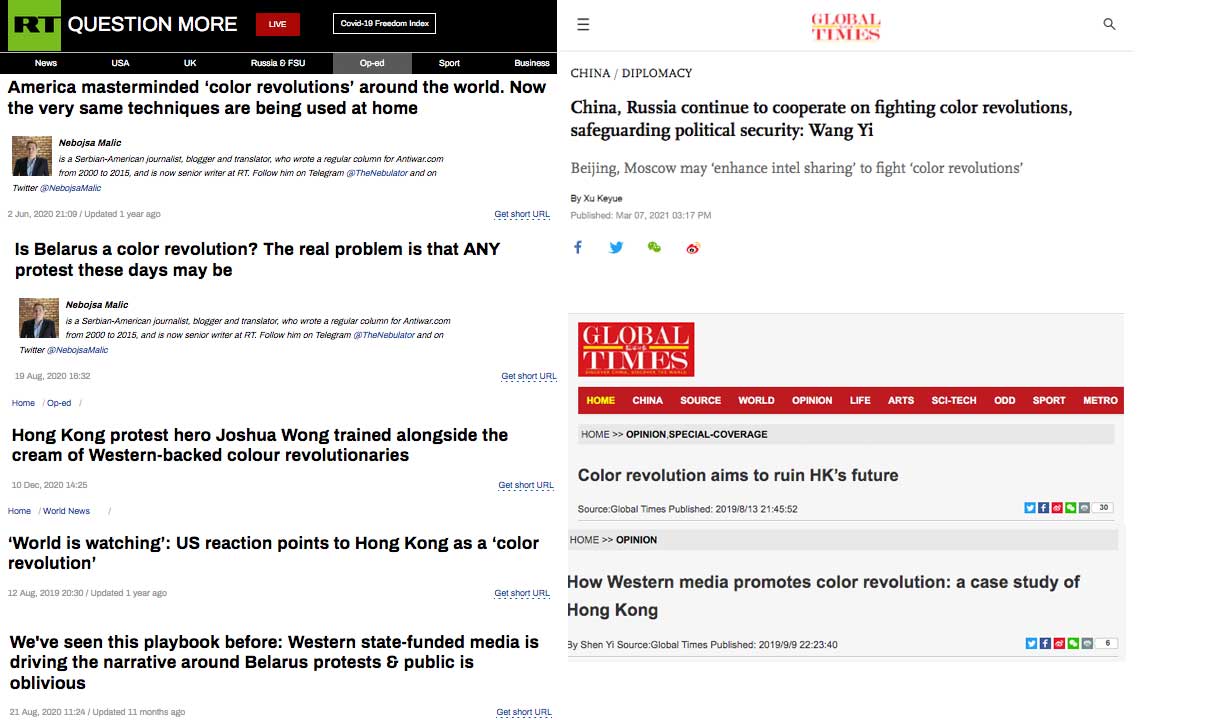
Cuban officials claim that Western governments are responsible for inciting protests that have spontaneously erupted in Cuba over the past weeks. These claims have been published and amplified on Russian and Chinese government aligned media platforms.

One such Russian government platform, which was recently placed on the US sanctions list for allegedly interfering in the 2016 US elections, claimed that “there is little doubt that the civil unrest to hit Cuba this week has been instigated by the United States using ‘color revolution’ tactics for regime change.” Such accusations are commonplace in Russian and Chinese government media whenever pro-democracy and anti-corruption protests appear in illiberal non-democratic nations. Such narratives and false claims are intended to de-legitimize these protest movements as being controlled and instigated by outside forces.

Contrary to foreign disinformation narratives, the United States does not prohibit “the export of agricultural products and food, medicine and medical equipment, and humanitarian goods to” Cuba. Indeed, the embargo has not extended to food and humanitarian supplies (such as medicine) for over two decades. Today, America is the largest exporter of food to Cuba. Nor does the US prohibit other nations from trading or engaging with Cuba. Canada, for example, is Cuba’s leading source of foreign revenue through tourism.
Cuba’s acute food and medicine shortage is due to its own economic failures, the repressive and authoritarian nature of the regime, and widespread corruption. Freedom House states in its 2021 report that “corruption remains a serious problem in Cuba, with widespread illegality permeating everyday life.”
Sanctions adopted and imposed by Western governments are indeed designed to apply economic pressure on targeted regimes. Sanctions are usually intended to promote changes in behaviour – often in the areas of human rights, corruption and other potentially destabilizing activities.
The Cuban protests were widely regarded by independent observers and media as being spontaneous and facilitated by the ability for likeminded Cubans to connect via social media on the island’s limited internet.

